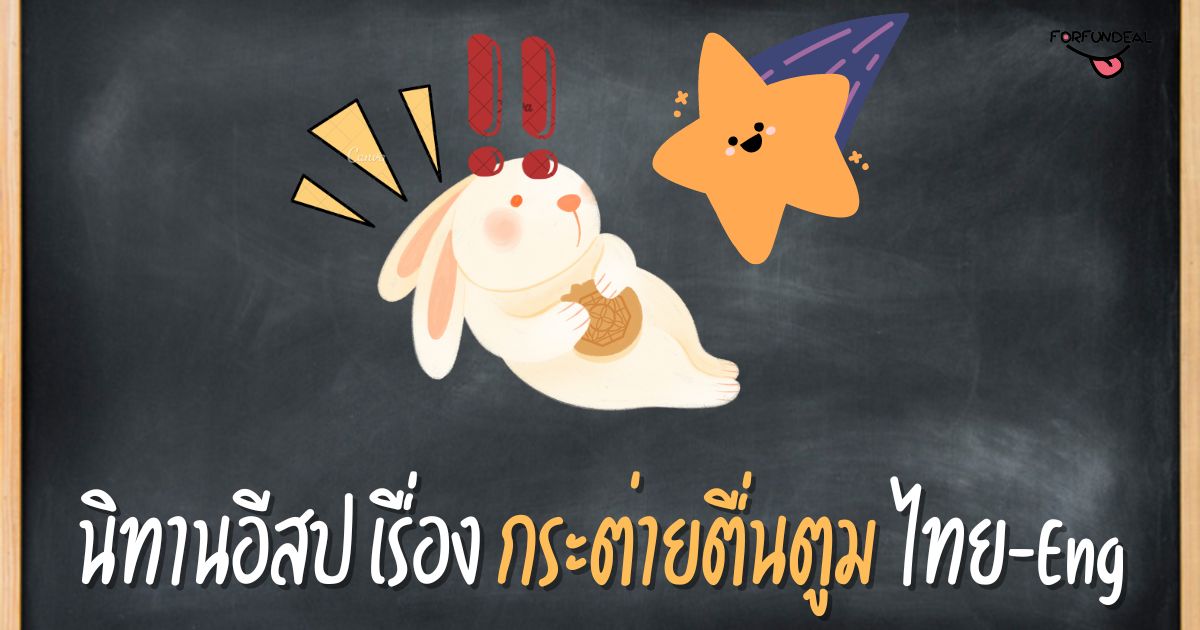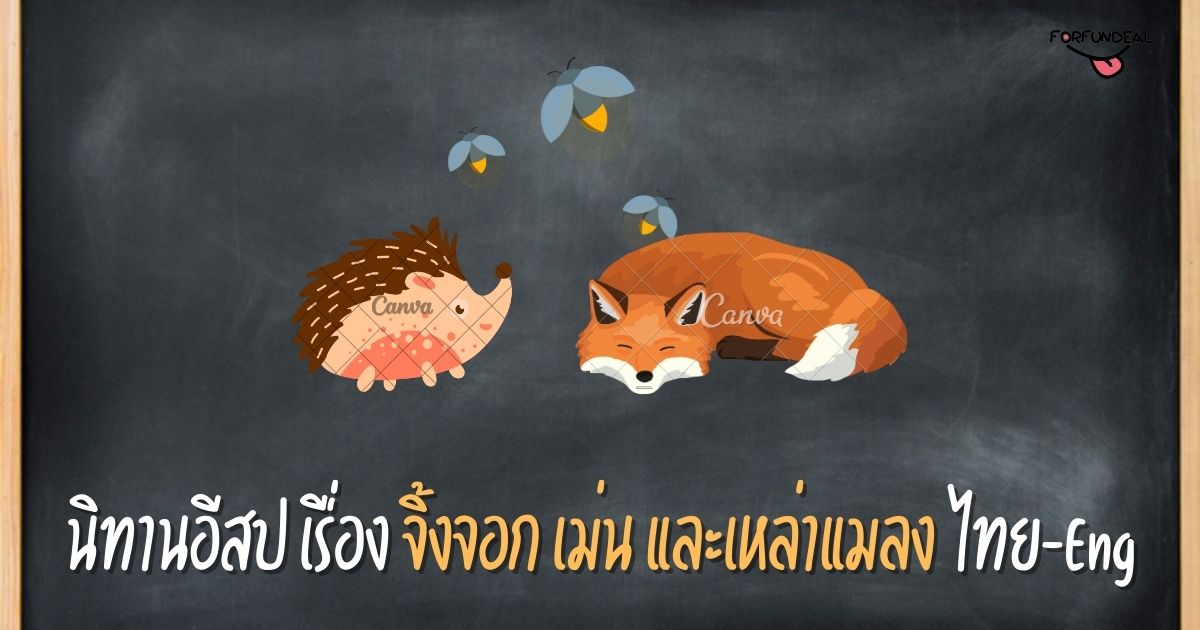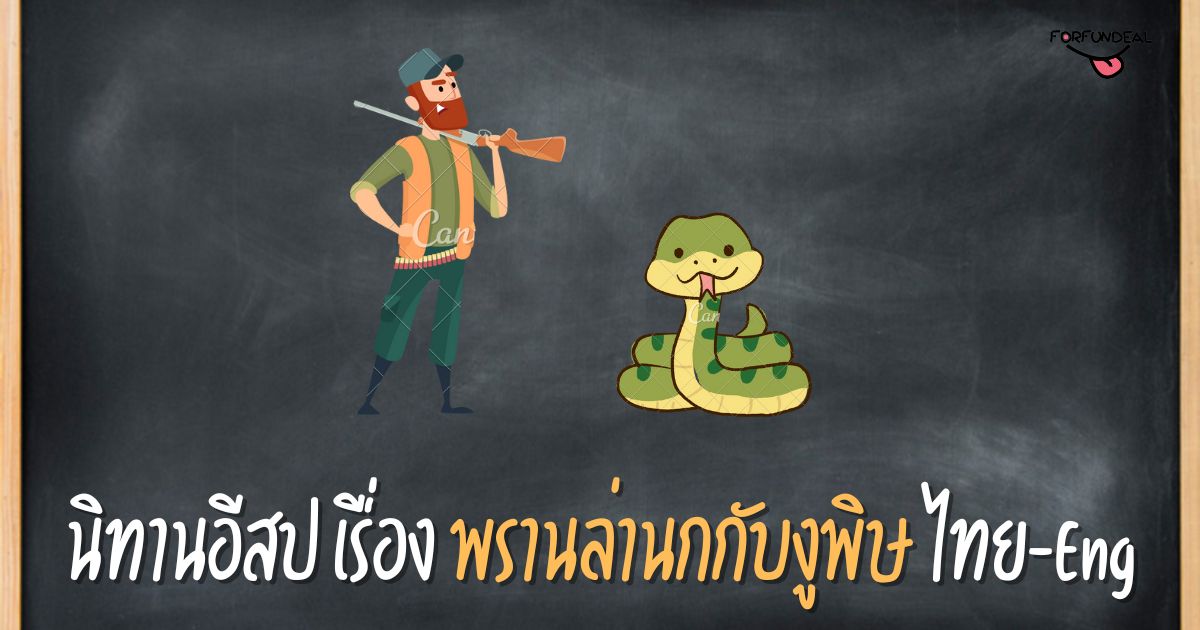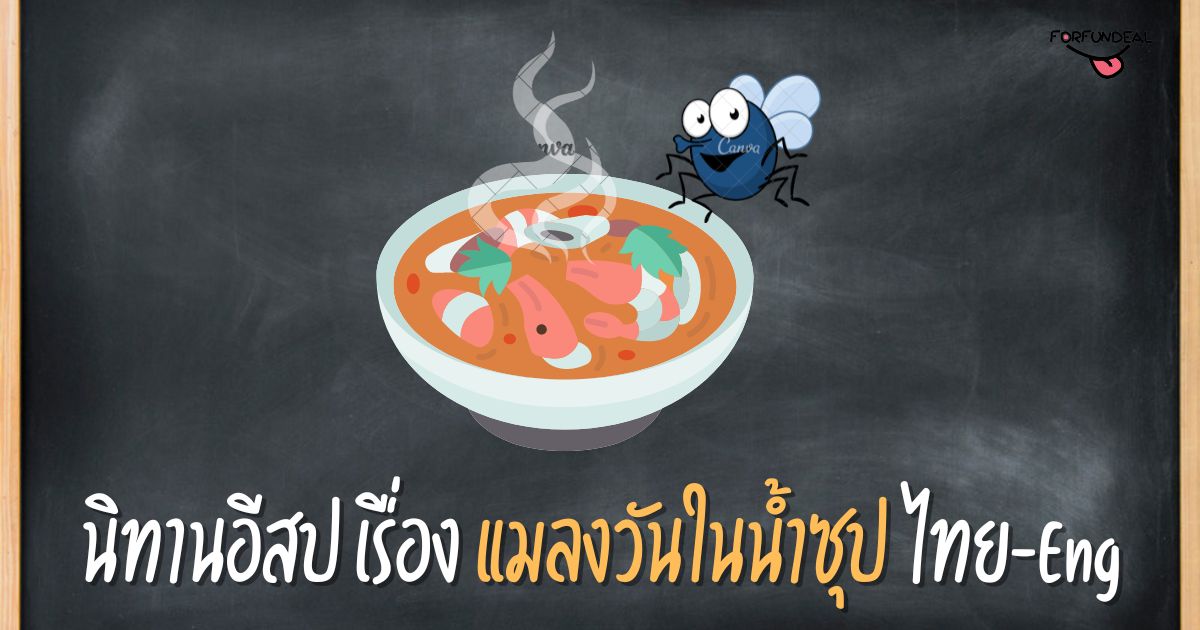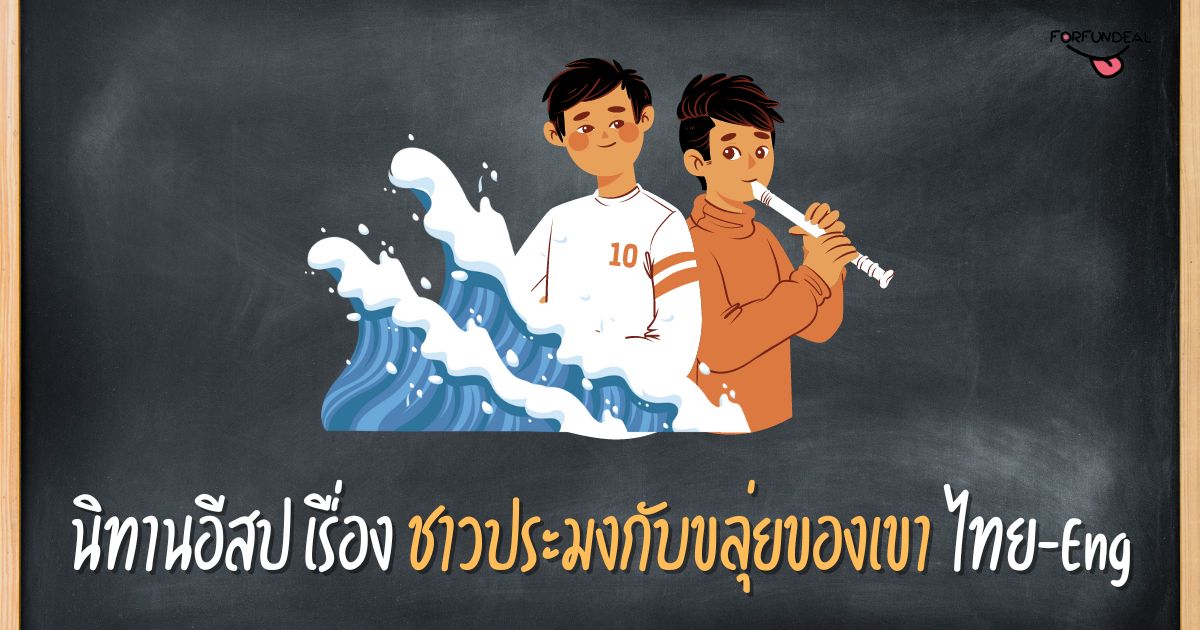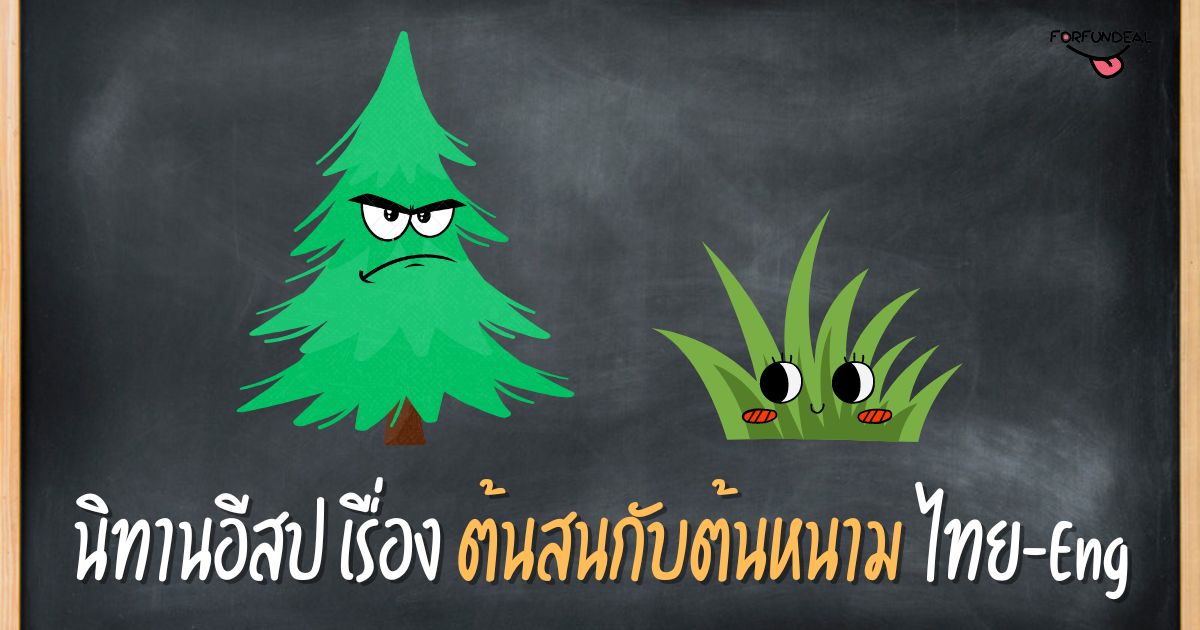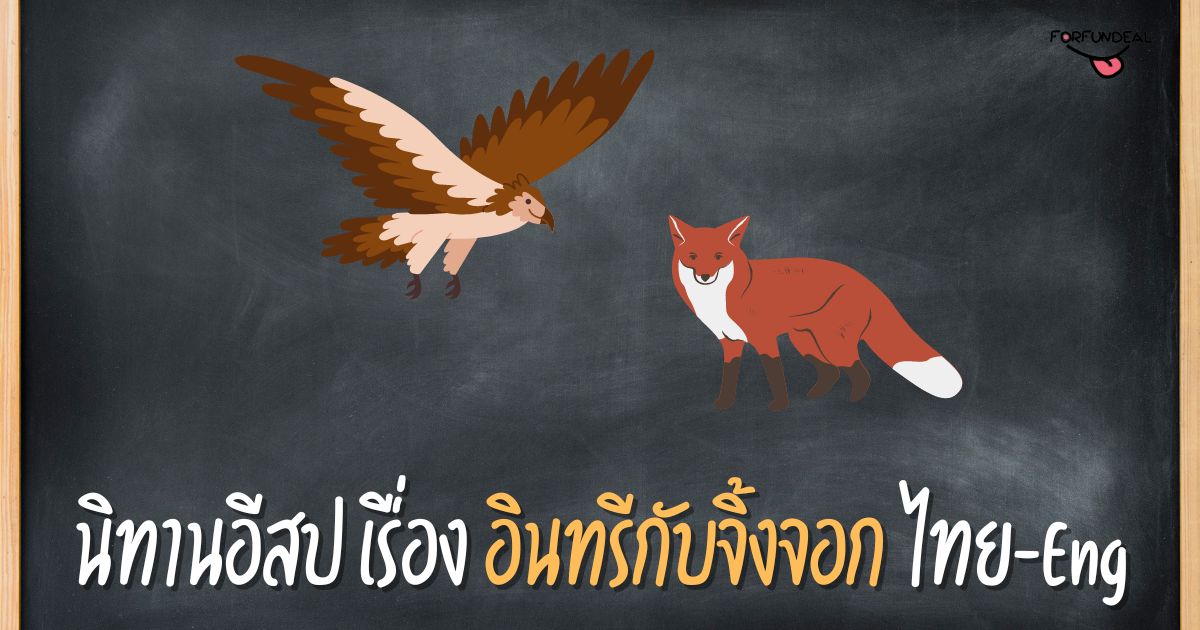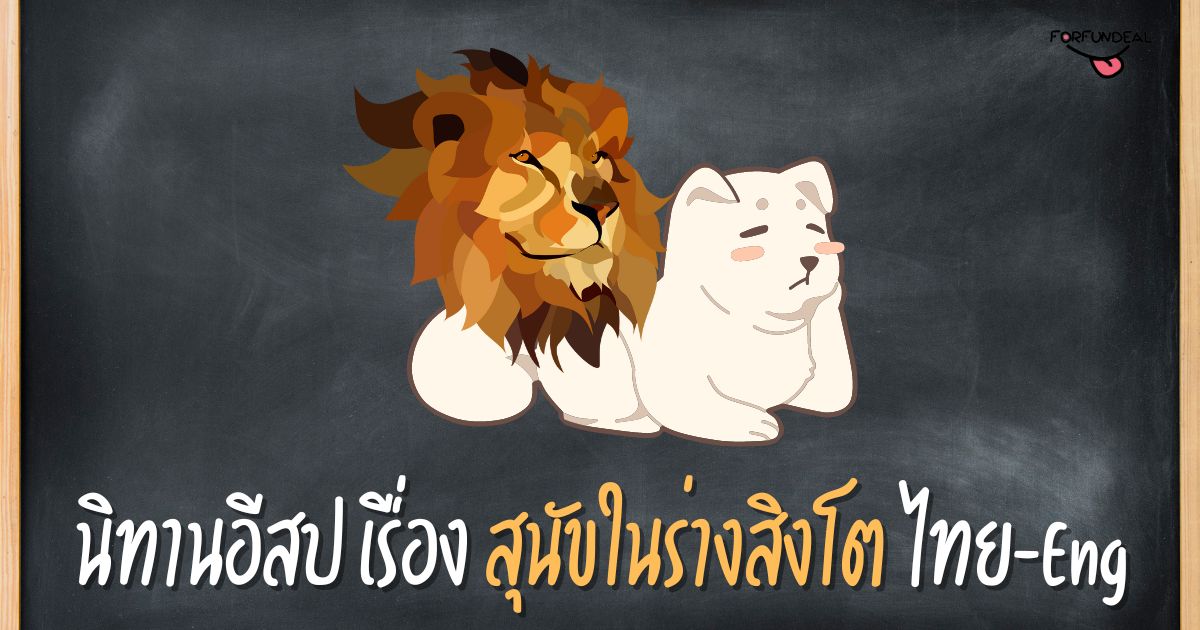“กระต่ายตื่นตูม” เป็นนิทานอีสปที่สอนเราถึงเวลาเจอเหตุการณ์อะไรอย่าตื่นตระหนก หรือรีบตัดสินอะไรเร็วเกินไป ให้ใจเย็น คิด วิเคราะห์ เหตุการณ์หรือปัญหาก่อนเสมอ
นิทานอีสปเรื่องกระต่ายตื่นตูม
กาลครั้งหนึ่งนานมาแล้ว ในทุ่งหญ้าอันเงียบสงบที่อยู่ใต้ท้องฟ้าอันกว้างใหญ่ กระต่ายฝูงหนึ่งกำลังเล่นสนุกและแทะหญ้าอ่อน ทุ่งหญ้าเป็นสวรรค์แห่งความเงียบสงบ มีสายลมอ่อนๆ พัดใบไม้ทำให้เกิดเสียงกรอบแกรบ และแสงแดดส่องประกายอบอุ่น ท่ามกลางฉากที่เงียบสงบนี้ ผลไม้สุกร่วงลงมาจากต้นไม้ ตกลงบนพื้นนุ่มพร้อมกับเสียงที่ดังกึกก้อง
Once upon a time, In a serene meadow nestled beneath the vast expanse of the sky, a group of hares frolicked and nibbled on tender grass. The meadow was a haven of tranquility, with a gentle breeze rustling the leaves and the sun casting a warm glow. Amidst this peaceful scene, a ripe fruit tumbled from a tree, landing on the soft ground with a resounding thud.
กระต่ายตัวหนึ่งตกใจกับเสียงที่คาดไม่ถึง จึงกระโจนขึ้นไปในอากาศด้วยขนและแขนขาที่ปลิวว่อน ปฏิกิริยาตื่นตระหนกของมันรวดเร็วและติดต่อกันราวกับลูกโซ่ กระต่ายตัวอื่นๆ ได้สังเกตปฏิกิริยาของเพื่อนๆ อย่างรวดเร็วรับรู้ถึงอันตราย ตาเบิกกว้างและใจเต้นแรง พวกมันพุ่งไปทุกทิศทุกทาง การตอบสนองโดยสัญชาตญาณของพวกมันเข้าครอบงำ
One of the hares, caught off guard by the unexpected sound, leaped into the air in a flurry of fur and limbs. Its frightened reaction was swift and contagious. The other hares, observing their companion’s reaction, quickly caught on to the perceived danger. Wide-eyed and hearts racing, they darted in all directions, their instinctual flight response taking over.
ทุ่งหญ้าที่ครั้งหนึ่งเคยเต็มไปด้วยเสียงหัวเราะและความสนุกสนาน บัดนี้กลับโกลาหล นกกางปีก กระต่ายมุดเข้าไปในโพรง และแม้แต่แมลงก็บินหนีไปอย่างบ้าคลั่ง ความตื่นตระหนกร่วมกันของกระต่ายทำให้ทุ่งหญ้าอันเงียบสงบกลายเป็นความตื่นตระหนกและหวาดกลัว
The meadow that had once been filled with laughter and play was now in chaos. Birds took wing, rabbits dashed into burrows, and even the insects buzzed away in a frenzy. The hares’ collective panic had turned the tranquil meadow into a flurry of motion and fear.
เมื่อความโกลาหลค่อยๆ สงบลง กระต่ายก็กลับเข้าไปในทุ่งหญ้าอย่างกล้าๆ กลัวๆ เพื่อความประหลาดใจของพวกมัน ท้องฟ้ายังคงแน่วแน่เหนือพวกเขา และพื้นใต้อุ้งเท้าของพวกเขารู้สึกมั่นคงอย่างมั่นใจ ผลไม้ที่ร่วงหล่นหล่นบนพื้นหญ้าอย่างไร้เดียงสาเป็นเครื่องพิสูจน์ถึงพลังแห่งการรับรู้
As the commotion gradually subsided, the hares timidly ventured back into the meadow. To their astonishment, the sky remained steadfast above them, and the ground beneath their paws felt reassuringly solid. The fallen fruit lay innocently on the grass, a silent testament to the power of perception.
ดังนั้น กระต่ายจึงได้เรียนรู้บทเรียนอันล้ำค่าในวันนั้น นั่นคือผลกระทบอันลึกซึ้งของความกลัวและผลที่ตามมาของปฏิกิริยาโดยปราศจากความเข้าใจ เสียงของผลไม้ที่ตกลงมาทำให้เกิดความเชื่อที่ไม่มีเหตุผลว่าท้องฟ้ากำลังตกลงมา ความตื่นตระหนกของพวกมันนำไปสู่ฉากที่วุ่นวาย ทั้งหมดมีรากฐานมาจากจินตนาการร่วมกันของพวกมัน
And so, the hares learned a valuable lesson that day – the profound impact of fear and the consequences of reacting without understanding. The sound of a falling fruit had triggered an irrational belief that the sky was falling. Their panic had led to a chaotic scene, all rooted in their collective imagination.

นิทานเรื่องนี้สอนให้รู้ว่า
“ความตื่นตระหนกและความกลัวสามารถนำไปสู่การตัดสินใจที่เร่งรีบและผลที่ตามมาโดยไม่ตั้งใจ”
- พลังแห่งการรับรู้: เรื่องราวเน้นว่าการรับรู้สามารถกำหนดความเป็นจริงของเราได้อย่างไร ความกลัวของกระต่ายเกิดจากการตีความผิดของเสียงง่ายๆ ทำให้พวกมันมีปฏิกิริยาอย่างมากต่อเหตุการณ์ที่ไม่เป็นอันตราย
- ผลที่ตามมาจากความตื่นตระหนก: ปฏิกิริยาตื่นตระหนกของกระต่ายแสดงให้เห็นถึงผลที่ตามมาของการปล่อยให้ความกลัวบงการการกระทำของเรา ความตื่นตระหนกอาจนำไปสู่พฤติกรรมที่ไร้เหตุผลและความวุ่นวายที่ไม่จำเป็น
- การตั้งคำถามกับความเชื่อ: เรื่องราวกระตุ้นให้เราตั้งคำถามกับความเชื่อและสัญชาตญาณของเราก่อนที่จะตอบสนอง การประเมินสถานการณ์ด้วยจิตใจที่แจ่มใสสามารถป้องกันสัญญาณเตือนที่ไม่จำเป็นได้
- อิทธิพลของจินตนาการ: จินตนาการของกระต่ายทำให้เกิดความกลัวและความตื่นตระหนกตามมา เป็นการเน้นย้ำว่าความคิดของเราสามารถมีอิทธิพลต่ออารมณ์และพฤติกรรมของเราได้อย่างไร
- ภาพสะท้อนความสงบ: เรื่องราวส่งเสริมความคิดที่จะสงบสติอารมณ์และมีเหตุผลเมื่อเผชิญกับสถานการณ์ที่ไม่แน่นอน สอนว่าปฏิกิริยาตามอารมณ์เพียงอย่างเดียวอาจนำไปสู่ความวุ่นวายโดยไม่จำเป็น
“Panic and fear can lead to hasty decisions and unintended consequences.”
- Power of Perception: The story highlights how perception can shape our reality. The hares’ fear was based on a misinterpretation of a simple sound, leading them to react dramatically to a benign event.
- Consequences of Panic: The hares’ panicked reaction demonstrates the consequences of letting fear dictate our actions. Panic can lead to irrational behavior and unnecessary chaos.
- Questioning Beliefs: The story encourages us to question our beliefs and instincts before reacting. Evaluating the situation with a clear mind can prevent unnecessary alarm.
- Influence of Imagination: The hares’ imagination fueled their fear and subsequent panic. It underscores how our thoughts can influence our emotions and behaviors.
- Calm Reflection: The story promotes the idea of remaining calm and rational when confronted with uncertain situations. It teaches that reacting based on emotions alone can lead to unnecessary turmoil.
โดยสรุปแล้วนิทานเรื่องนี้เป็นเครื่องเตือนใจถึงผลของการปล่อยให้ความกลัวมาบงการการกระทำของเรา มันกระตุ้นให้เราเข้าถึงสถานการณ์ด้วยความชัดเจนและการคิดเชิงวิพากษ์ เพื่อให้การตอบสนองของเรามีพื้นฐานมาจากความเป็นจริงแทนที่จะขับเคลื่อนด้วยความกลัวที่ไม่มีมูลความจริง

